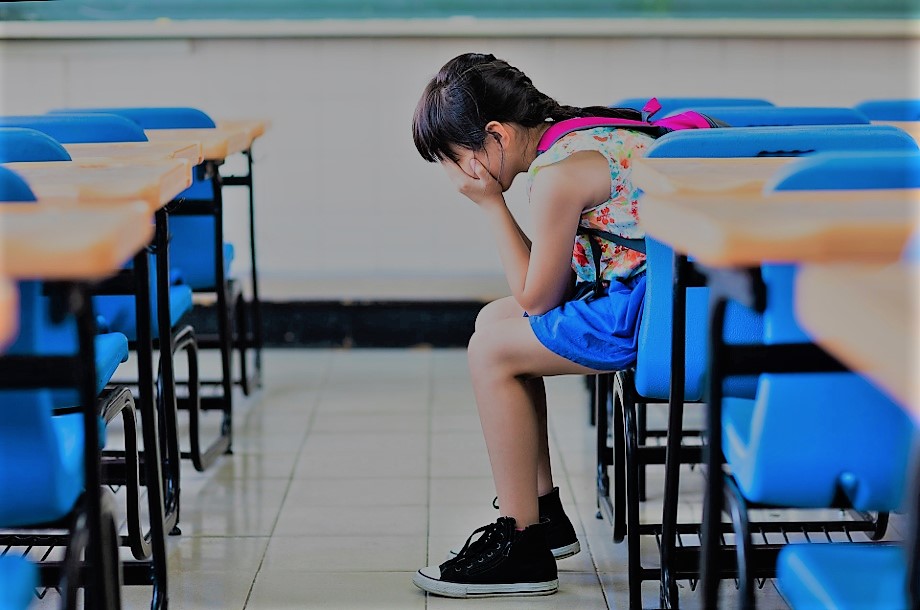When and How children suffer from depression
The child does not feel like playing anymore. It is always sad. The lunch is almost untouched. There are also sleep problems and unfounded fears: these signs indicate a depression . What is important is a quick diagnosis to initiate therapy . Because according to statistics dies every other day in Germany, a teenager by suicide .
The Association German Alliance Against Depression assumes that in Germany about one percent of pre-school children, just under two percent of primary school children and three to ten percent of young people between twelve and 17 years of depression.
While 20 years ago, children’s depression was ruled out, depressive signs are already being observed in small and preschool children. The frequency of depression, however, increases above all from the age of twelve. Of the adolescents between the ages of twelve and 17, 18 percent have suffered depression at least once, as determined by a youth study conducted by the University of Bremen in cooperation with the Psychological Institute of the University of Münster.
Typical symptoms of depression depending on age
Recognizing depression in a child is not easy for parents. Even doctors and psychologists often have problems correctly interpret the disease in children right off. Basically, the younger the children, the more difficult the diagnosis. Young children are barely able to talk about their feelings. The problem with older children and teens , on the other hand, is that they often do not dare or have a hard time opening up to parents and other adults during adolescence .
It is even more important that parents closely monitor their children and, depending on their age, listen in on the following symptoms and behaviors.
Symptoms of depression in children and adolescents
Babies: Even babies can show depressive symptoms. This is usually the result of loss of caregivers or mistreatment. Initially, these babies scream and cry a lot, then they become increasingly impassive. The depression also affects the development of the little ones: they often stay lean, grow rather slowly and grab, babble and crawl later than other children their age.
Toddlers under the age of three: Even in infants, the onset of the disease often depends on the children having lost an important caregiver, such as a death or divorce. The children are also back in their development: they learn to walk and speak later and are less skilled in dealing with their hands than peers.
In addition, depressive infants often suffer from sleep problems and nightmares. Some also eat very little, behave very apathetic and complain very much. Others suck excessively on their thumbs or constantly rock back and forth. Extreme cases even hit the head against the wall or tear out hair.
Preschoolers: In preschool children, depression affects two extremes of behavior. Some are deeply introspective and very anxious. They have no desire to play with other children, which in turn is reflected in their development. For example, they learn to drive late with the wheel or to climb scaffolding.
Other children are almost opposite: they are moody and aggressive and tend to argue with other children or disturb them while playing. In addition, there are often eating and sleeping disorders as well as headache and abdominal pain.
Schoolchildren: At this age, depression is already clearer. The students are sad, anxious and overly critical of themselves. Activities that gave them pleasure recently are suddenly no fun anymore.
As the children are trapped in their own thoughts, they become increasingly unconcentrated, which ultimately also suffers from academic achievement. Even at school age, sleep and eating disorders are effects of depression. In addition, suicidal thoughts become more concrete in this phase.
Teenagers: Depressed teens sway in their mood between “exultant and deathly sad”. They doubt the world, are dissatisfied and very thoughtful. Many are trying to fight their problems with alcohol and drugs. In others, especially girls, the eating disorders often culminate in anorexia or regular feeding attacks as well as in the so-called scratches .
At the same time, the adolescents are hardly to grasp for their parents and other adults: inquiries are perceived as annoying. For some, suicide becomes the only conceivable way out – like child and adolescent psychiatrist. Hellmuth Braun-Scharm “Spiegel Online” reports that 50 percent of children aged 10 to 14 have suicidal thoughts once in their lives. And, in fact, suicides are the second most common cause of death among 15- to 20-year-olds after traffic accidents. Every other day a teenager dies in Germany by suicide.
Absolutely with professional help determine the cause
If parents perceive such symptoms in their children and suspect a depression, a doctor should be consulted. If, in turn, he claims that depression “grows out” over time, parents should be skeptical. There is a risk that the child will become depressed again and again – even as an adult. Relapses are very common.
Therefore it is important to find out the reasons for the illness with the help of the doctor or a child psychiatrist.
Typical causes of depression in children
- Divorce of the parents and the subsequent absence of a parent in education
- the death of a family member or another caregiver of the child
- very common dispute between the parents
- physical or mental illness of a parent
- Mistreatment or severe neglect
- Traumatic experience, for example, a serious accident or flight and loss of home due to war
One problem, however, is that Germany is severely underserved with child and adolescent psychiatrists. The waiting times for appointments are very long. Often, the only way to get professional help is to go to a hospital emergency room.
Medicines alone are not enough
The majority of depressed children are treated on an outpatient basis. In more severe cases, and if the children are to recover from domestic or school problems, a stay in a hospital may also be useful, for example, to train healthy eating habits in the case of eating disorders.
For inpatient therapies, a team of physicians, psychologists, social workers and educators will look after the children. The different types of psychotherapy are designed to help children and adolescents better understand themselves and better manage stress and their own problems and doubts.
In particularly severe depression, drugs can improve the success of therapy. They can stabilize the patient’s condition, but should by no means be the only form of treatment, but should only be used as part of a comprehensive therapy.


